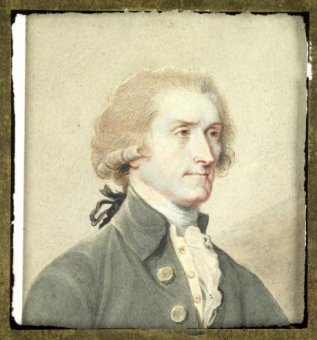
 Thomas Jefferson (1743–1826) was precluded by infection from going to the Virginia Convention of 1774 that came across to go over what direction to go when you look at the aftermath associated with the Boston tea-party and the finishing of the interface of Boston because of the British. But Jefferson delivered a paper into the meeting, later on posted as A Summary View for the Rights of British The united states. The force of the arguments and its own literary quality led the Convention to elect Jefferson to offer in the Continental Congress.
Thomas Jefferson (1743–1826) was precluded by infection from going to the Virginia Convention of 1774 that came across to go over what direction to go when you look at the aftermath associated with the Boston tea-party and the finishing of the interface of Boston because of the British. But Jefferson delivered a paper into the meeting, later on posted as A Summary View for the Rights of British The united states. The force of the arguments and its own literary quality led the Convention to elect Jefferson to offer in the Continental Congress.
He was also anti-British become utilized until an overall total break with britain had become inevitable. Then he had been entrusted with drafting the Declaration of Independence. This assignment, and just what he made of it, ensured Jefferson's place as an apostle of liberty. Into the Declaration, plus his various other writings, Jefferson was perhaps the most readily useful spokesman we now have had when it comes to US ideals of freedom, equality, trust in training, as well as in the wisdom of typical guy. Exactly what Jefferson wished to be recalled for, besides composing the Declaration of Independence, was composing the Virginia Statute for Religious Freedom and founding the University of Virginia
Virginia Statute for Spiritual Freedom
(annotated transcript)
The Virginia Statute for spiritual Freedom is a declaration about both freedom of conscience and concept of split of church and condition. Compiled by Thomas Jefferson and passed away by the Virginia General Assembly on January 16, 1786, this is the forerunner associated with the first amendment defenses for spiritual freedom. Divided into three sentences, the statute is grounded in Jefferson's viewpoint. It can be passed in Virginia because Dissenting sects indeed there (specifically Baptists, Presbyterians, and Methodists) had petitioned strongly throughout the preceding ten years for religious freedom, including the separation of chapel and state.
Jefferson had argued when you look at the Declaration of Independence that "the laws of Nature as well as Nature's God entitle [man]…." The first paragraph of spiritual statute proclaims those types of entitlements, freedom of thought. To Jefferson, "Nature's Jesus, " who is undeniably noticeable inside workings for the universe, provides man the freedom to choose his religious beliefs. This is actually the divinity who deists of times accepted—a God whom created the globe and is the last judge of man, but who perhaps not intervene within the affairs of guy. This God just who gives guy the freedom to trust or not to trust can also be the God regarding the Christian sects.
I. Whereas Almighty God hath developed the head free; that attempts to influence it by temporal punishment or burthens, or by civil incapacitations, tend and then beget practices of hypocrisy and meanness, and therefore are a deviation from the program associated with Holy composer of our religion, which being Lord both of mind and body, yet opted for not to propagate it by coercions on both, because had been his Almighty capacity to do . . .
The second section is the act it self, which states that no individual is compelled to wait any church or support it with his fees. It says that someone is able to worship as he pleases without any discrimination.
II. Be it enacted because of the General Assembly, that no man shall be compelled to constant or help any religious worship, place, or ministry at all, nor shall be enforced, restrained, molested, or burthened in the human body or items, nor shall usually suffer because of their religious opinions or belief; but that every males shall be free to profess, and by debate to maintain, their particular viewpoint in issues of religion, and that equivalent shall in no wise diminish, enlarge, or influence their particular municipal capacities.
The third paragraph reflects Jefferson's belief within the individuals right, through their chosen assemblies, to improve any law. Right here, Jefferson says that this statute is not irrevocable because no legislation is (not really the Constitution). Future assemblies that elect to repeal or circumscribe the act do so at their own danger, since this is "an infringement of all-natural right." Therefore, Jefferson articulates their viewpoint of both natural right and sovereignty of those.
III. And though we really realize that this installation elected by the folks for ordinary purposes of legislation only, haven't any power to restrain the act of succeeding assemblies, constituted with capabilities corresponding to our very own, and therefore therefore to declare this work is irrevocable could be of no effect in law; yet we are able to declare, and do declare, that the liberties hereby asserted are of this normal liberties of humanity, hence if any act will be hereafter passed away to repeal the present, or even to narrow its procedure, such would-be a violation of normal right.
YOU MIGHT ALSO LIKE












